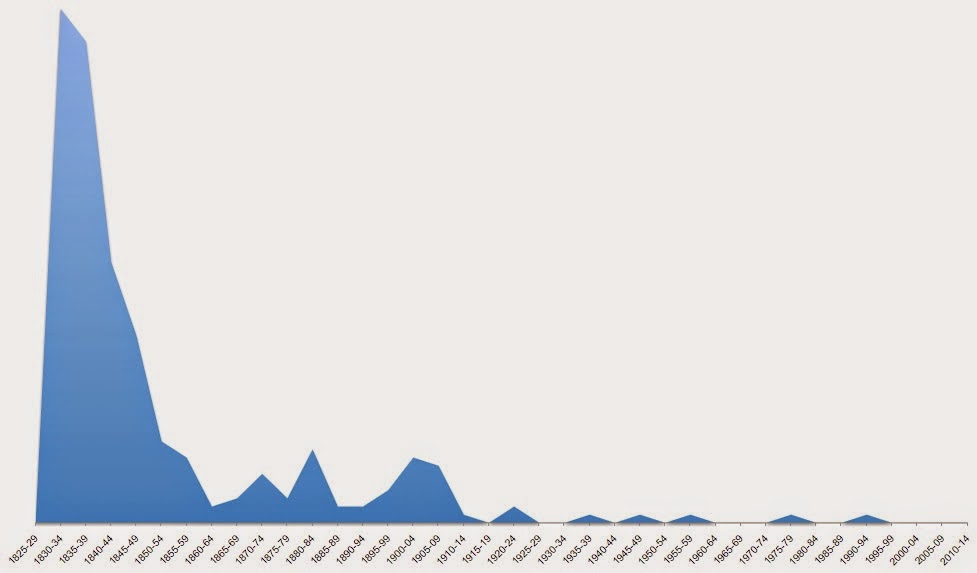Right off the bat, we're introduced to Ruman, the equivalent of a Mormon-Moroni character--the final believer and record keeper as well as compiler, abridger, and narrator of the Aklatan. As with Mormon in the Book of Mormon, whenever we hear things in a narrative, third-person voice, it'll almost always be Ruman speaking. His introduction here is also similar to Moroni's "Title Page", as it explains his method and purpose for compiling this record.
Method
Ruman says that he wrote on copper sheets so that the record would last until it's revealed in future generations. (He'll explain more about how he fashioned these plates in his book at the end of the Aklatan.) He also tells that he wrote them in a language of his own creation--a code of sorts--so that if the sheets are found by the believers' enemies, who have sworn to destroy everything connected to the Gospel of Christ, they would neither comprehend the words nor their value.
This reminded me of the descriptions in the Book of Mormon of their method of recording. Lehi, the first record keeper (the English translation of his record being lost by Martin Harris), could read Egyptian:
For it were not possible that our father, Lehi, could have remembered all these things, to have taught them to his children, except it were for the help of these [brass] plates; for he having been taught in the language of the Egyptians therefore he could read these engravings, and teach them to his children... (Mosiah 1:4)It doesn't specify, but "the language of the Egyptians" could mean any or all of these written forms: formal hieroglyphic, hieratic of religious texts, and/or early demotic of administrative, legal, and commercial documents.
It's apparent from this that Lehi, and later Nephi, followed the pattern of the Brass Plates--Egyptian engravings on metal plates--to keep their own lasting records. Nephi explains their family code:
I, Nephi,... was taught somewhat in all the learning of my father;... therefore I make a record of my proceedings in my days.
Yea, I make a record in the language of my father, which consists of the learning of the Jews and the language of the Egyptians. (1 Nephi 1:1-2)Though novel in 1829, this kind of mixed writing system--communicating one language in the symbols of another--now appears to have been prevalent in the ancient Mid-East at the time of Lehi and before, and Moroni explains why they wrote in Egyptian and that it'd been changed over the Nephite millennium to something like this:
And now, behold, we have written this record according to our knowledge, in the characters which are called among us the reformed Egyptian, being handed down and altered by us, according to our manner of speech.
And if our plates had been sufficiently large we should have written in Hebrew; but the Hebrew hath been altered by us also; and if we could have written in Hebrew, behold, ye would have had no imperfection in our record.
But the Lord knoweth the things which we have written, and also that none other people knoweth our language; and because that none other people knoweth our language, therefore he hath prepared means for the interpretation thereof. (Mormon 9:32-34)Which brings us full circle to Ruman. Echoing Moroni, Ruman also has faith that God would provide a means for his coded record to be translated and the Aklatan to be revealed to a chosen people in the future who would then lay the foundation for peace and prosperity.
On the Title Page to the Book of Mormon, Moroni declares that the purpose of that record is 1) to remind remnant Israel of God's dealings and covenants with their ancestors and 2) to convince all that Jesus is the Christ. Ruman also explains that he compiled the stories, histories, and prophecies of the Aklatan 1) so that future generations and inhabitants of the islands would know the truth of their ancestors and God's word concerning them and 2) to bear witness that Jesus is the Son of God and that salvation comes through Him and His word. The similarities are striking.
Ruman then begins his record with the writings of the prophet Suran taken from a great scroll. The remainder of the record comes from many other scrolls, bamboo records, and other sacred writings in his possession that contain the words and preachings of many prophets. Like Mormon, Ruman has written only those things that the Holy Ghost testified were important to be preserved and passed on.
From archaeological, historical, and modern-day evidence from the Philippines, Taiwan, Indonesia, etc., we can visualize these scrolls, bamboo records, and the like as similar to these:







